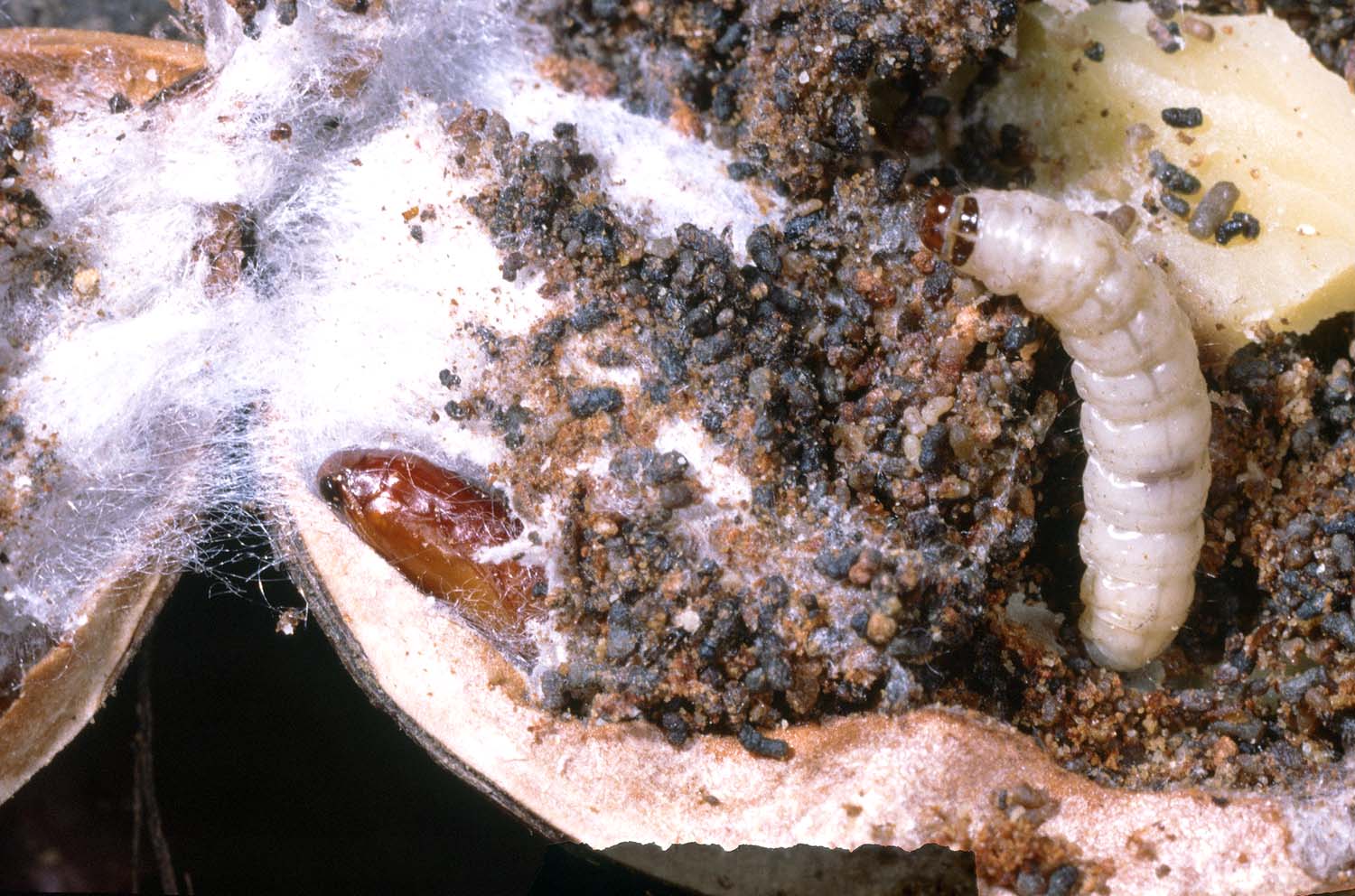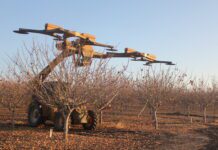
Tree nut growers have many choices in mating disruption products for navel orangeworm control in their orchards, and the Natural Resource Conservation Service’s (NRCS) 595 program offers financial incentives to adopt mating disruption and use it in an integrated management plan.
The conservation pest management system integrates mating disruption products with orchard sanitation and mummy nut removal, extra shake and pole removal, monitoring and chemical control timing to lower NOW pressure. Mating disruption products include lures and pheromone sprays. Insecticide timing includes traps and scouting. Early harvest is another component of the program. NRCS does not provide pest management recommendations.
Agronomist Karen Lowell with NRCS said in a presentation at The Almond Conference that implementation of a grower’s conservation pest management system does not require changes in their current chemical control strategies for pests and diseases. Monitoring for pests and disease is the foundation of the program. NRCS encourages following UC IPM guidelines.
Documentation required in the NRCS 595 program includes date of mummy nuts counted and average count of mummies over a minimum of 20 trees. If a grower is unable to reach the threshold, they must provide an invoice showing a minimum of $200 per acre invested in poling crew labor in an attempt to reach the threshold.
Other documentation needed to participate in the program includes a list of types of traps used for NOW and the date placed in the orchard, monitoring results for NOW, harvest date and records of pest or pest damage noted in the harvest sample. Growers must also provide a list of the pesticides, including the name, rate used and application date of the mating disruption product used on the contracted acreage.
Additional cultural practices used to avoid pesticide impact on sensitive areas near an orchard must include a map and description of the practice.
Lowell said tree nut growers can get started by contacting their NRCS county office to create a conservation plan for their orchards. Financial assistance is available through several Farm Bill funded programs. The NRCS planner can provide details about the programs. Although the program is aimed at navel orangeworm control, it may also be used to address a different pest or disease issue in another crop.

Cecilia Parsons
Cecilia Parsons has lived in the Central Valley community of Ducor since 1976, covering agriculture for numerous agricultural publications over the years. She has found and nurtured many wonderful and helpful contacts in the ag community, including the UCCE advisors, allowing for news coverage that focuses on the basics of food production.
She is always on the search for new ag topics that can help growers and processors in the San Joaquin Valley improve their bottom line.
In her free time, Cecilia rides her horse, Holly in ranch versatility shows and raises registered Shetland sheep which she exhibits at county and state fairs during the summer.















